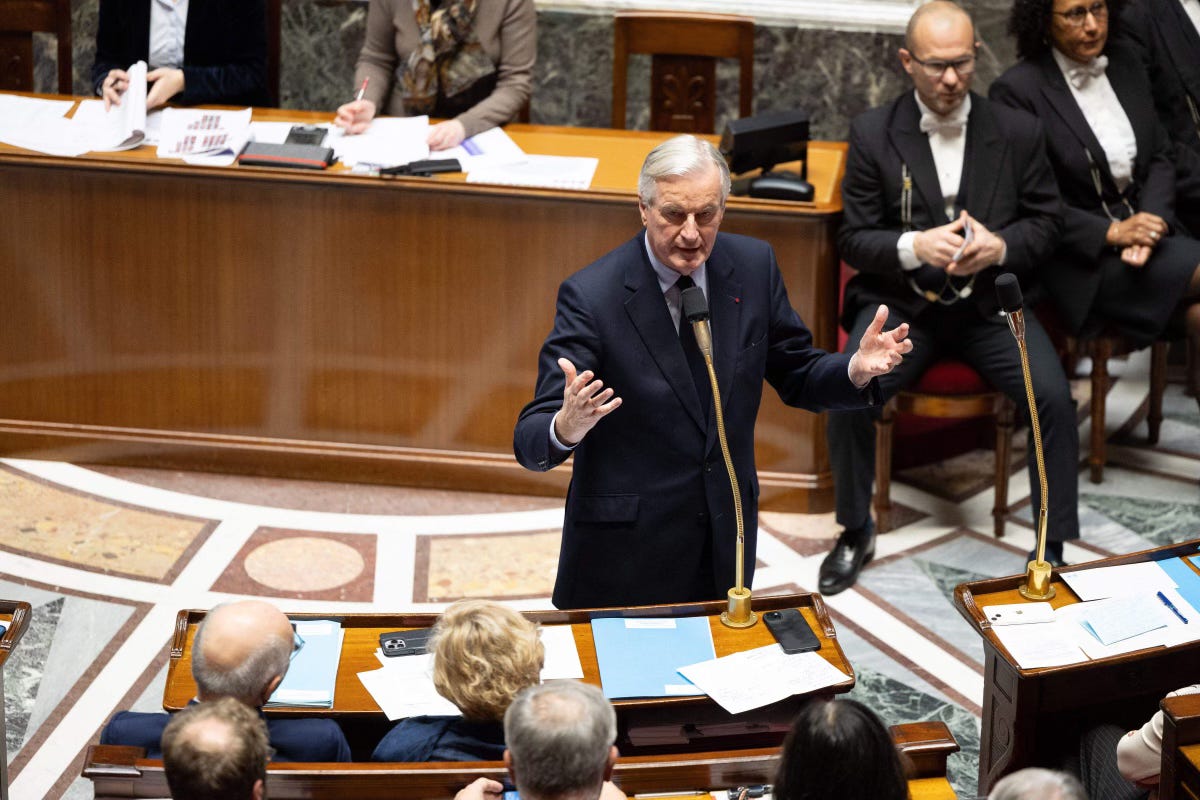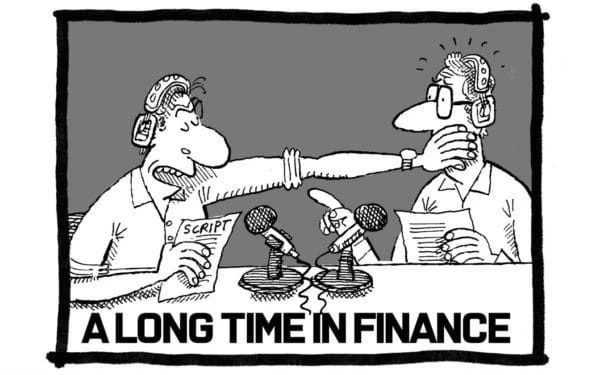Barnier out as French government collapses
Michel Barnier has made history today as the shortest serving prime minister in the history of the Fifth Republic.

France's minority government collapsed this evening after just three months, meaning Michel Barnier is officially the shortest serving prime minister in the history of the Fifth Republic.
The 73-year-old, famed in Britain for his role as the EU’s chief Brexit negotiator, has, as expected, failed to survive a vote of no confidence.
A majority of 288 was needed to fell the government, meaning the motion of no confidence, backed by 331 MPs, passed comfortably.
This evening’s vote came after Barnier attempted to rein in France’s spiralling deficit on Monday by pushing through a social security budget, containing €40 billion of spending cuts and €20 billion of tax rises, without a vote by MPs.
Despite the right-of-centre political veteran making last-minute concessions to his opponents - bowing, for instance, to Marine Le Pen’s demands that he remove a new tax on electricity - neither Le Pen’s hard-right National Rally, nor the left-wing New Popular Front coalition, headed by Jean-Luc Mélenchon’s hard-left France Unbowed, would back his budget.
So Barnier resorted to using Article 49.3 of the French constitution to push it through parliament without a vote, triggering in turn a vote of no confidence in his government.
Article 49.3 has been used 113 times since the establishment of the Fifth Republic in 1958. But never before has a French government been toppled by a vote of no confidence following its use.
From the moment of his appointment, Michel Barnier faced an uphill battle to command cross-party support in the country’s bitterly divided hung parliament. And his opponents seem unfazed by his warnings that France would be heading for the abyss if his government collapsed.
It’s unclear who will head a caretaker government to keep the show running. Although Emmanuel Macron faces the political headache of searching for a replacement, Barnier’s fall won’t directly affect his own role as French President.
While the outcome of the vote will inevitably increase calls from Macron’s opponents for him to resign early, he will almost certainly pay no attention, vowing this week to serve “until the very last second” of his term, which ends in April 2027.
A fresh bout of political uncertainty does however spell further trouble for France’s economic woes. Barnier’s ousting means the country has been left with no budget at all for 2025, and some kind of emergency will have to be passed to keep the country solvent.
France needs political stability to reassure the markets. More market jitters means the cost of servicing the country’s vast national debt will only climb higher.
France’s national debt now stands at above €3 trillion, while the annual deficit is running at €154 billion.
On Wednesday last week, French sovereign debt was trading at the exact same level as that of Greece. At the time, Anthony Peters warned in Reaction that unmanageable levels of French debt could trigger a Eurozone financial meltdown.
Today’s fresh political upheaval will do little to alleviate that risk.
Caitlin Allen
Deputy Editor
ON REACTION TODAY
Gerald Warner
Starmer is blindsided by his fatal attraction towards Brussels
David Waywell
Gladiator 2 captures the Trumpian Zeitgeist
Neil Collins and Jonathan Ford
A Long Time in Finance: the John Stonehouse affair
ALSO KNOWS
South Korean president facing impeachment - Opposition lawmakers have begun proceedings to impeach President Yoon Suk Yeol after he unexpectedly declared martial law last night. The parliament gathered to block martial law and the decision was reversed six hours later but protests for Yoon to resign persist in Seoul. Parliament will decide on impeachment by Saturday.
Scottish Budget unveiled - The scrapping of the two-child benefit cap, £200m to reduce NHS wait times, £21bn for health and social care, an unfreezing of council tax and £768m for affordable homes are amongst the measures announced by Scotland’s Finance Secretary Shona Robison today. Totalling £47.7bn, Holyrood is expected to vote on the Budget in February.
Interest rates to be higher for longer - The OECD forecasts that UK interest rates will fall at a lower rate than previously anticipated over the next two years due to changes to tax and spending in Chancellor Rachel Reeves’s Budget. Rates are expected to fall from 4.75% to 3.5% by 2026.
US healthcare company executive shot dead - Brian Thompson, a senior executive who was due to speak at an investor conference today, was fatally shot outside a Hilton Hotel in Manhattan, New York City. Police are conducting a manhunt for a suspect wearing a ski mask who fled the scene.
FIVE THINGS
Curated by the Reaction Team - Alexandra Luca
How Ukraine has faced its worst month on the battlefield in two years – visualised, in The Guardian
Democracy is in a doom spiral but it isn’t dead yet, writes Cas Mudde in Prospect
“Revenge cycle”: South Korean crisis highlights deep political division, in the Financial Times
Alex Travelli and Shayeza Walid reveal how a country’s economy was siphoned dry, in The New York Times
A Trumpian policy for Africa. Ken Opalo in Foreign Affairs





